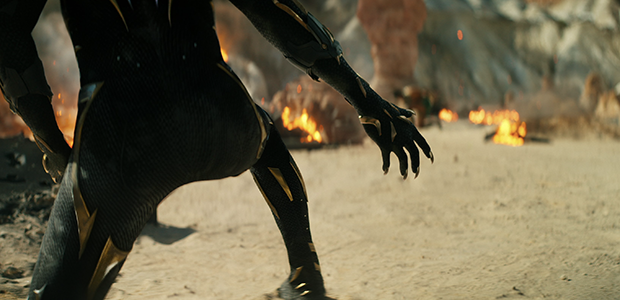
In the same way that no one could have predicted the cultural and cinematic impact of Black Panther when it burst onto the scene a few years ago, no one ever imagined its still relatively young lead actor, the graceful Chadwick Boseman, would no longer be alive for its sequel. The most obvious thing would have been to either recast his character (it’s been done a few times, especially in the MCU) or simply not proceed with a follow-up film. Kudos then to director Ryan Coogler for having the resolve to do the latter without resorting to the former, a tricky decision that results in the film being somber yet purposeful, while still maintaining a level of sophisticated storytelling that few films of the genre (or otherwise) manage to do.
The film seems aware, right from the outset, that fans expect both closure and continuation and it serves them this cocktail by addressing the proverbial elephant in the room straight away. King T’challa has died and his kingdom is now under threat. Amongst the horde of countries trying to invade and swipe away some of the potent Vibranium that thrives in Wakanda is one whose existence none are aware of. Less a country and more a race of ancient, sea-dwelling amphibious super beings, their king, Namor, is a ruthless anti-hero in grand Black Panther fashion – uncompromising and ferociously dedicated to his contrived view of the world. The conflict this creates provides the film with the impetus to test both familiar and new characters whilst allowing sufficient world-building to take place without suffocating.
Like its predecessor, it’s safe to say that Wakanda Forever is a superhero film that exists at tangents to the genre, while simultaneously feeling trapped by it. It presents the enemy as convincing opponents driven to do what is morally right by their own skewered standards. Namor especially has motivations that are steeped in a convincingly relatable backstory that draws parallels with many of the impulses that drive the people of Wakanda and its dynasty. Using such an approach allows Coogler to let the film rise above the recent drivel of MCU offerings, primarily on television, to showcase once again the importance of character-based storytelling. The script manages to infuse the culture and heritage of Latin America into building up a believable version of Namor’s ancestry – making it seem more real than it should have any right to be. Yes, Coogler (also credited as co-writer) reuses winning elements from his directorial toolkit employed to good use in the first film, but, you know, if it ain’t broken why fix it?
By the time the credits roll, Wakanda Forever transitions gradually from mournful to memorable using an array of emotions that are resonant, not sensational and aided by the gravitas of the script. Nearly every onscreen character is given the space to grow or change within the film’s storyline though this contributes to its elongated, some would even say bloated, running time (the second longest for the MCU, after Endgame). But even though it is familiar and genre-constrained, it’s not without rich rewards and provides a complex offering of grief for and eulogy to a much loved (and missed) character.
Rating: 



